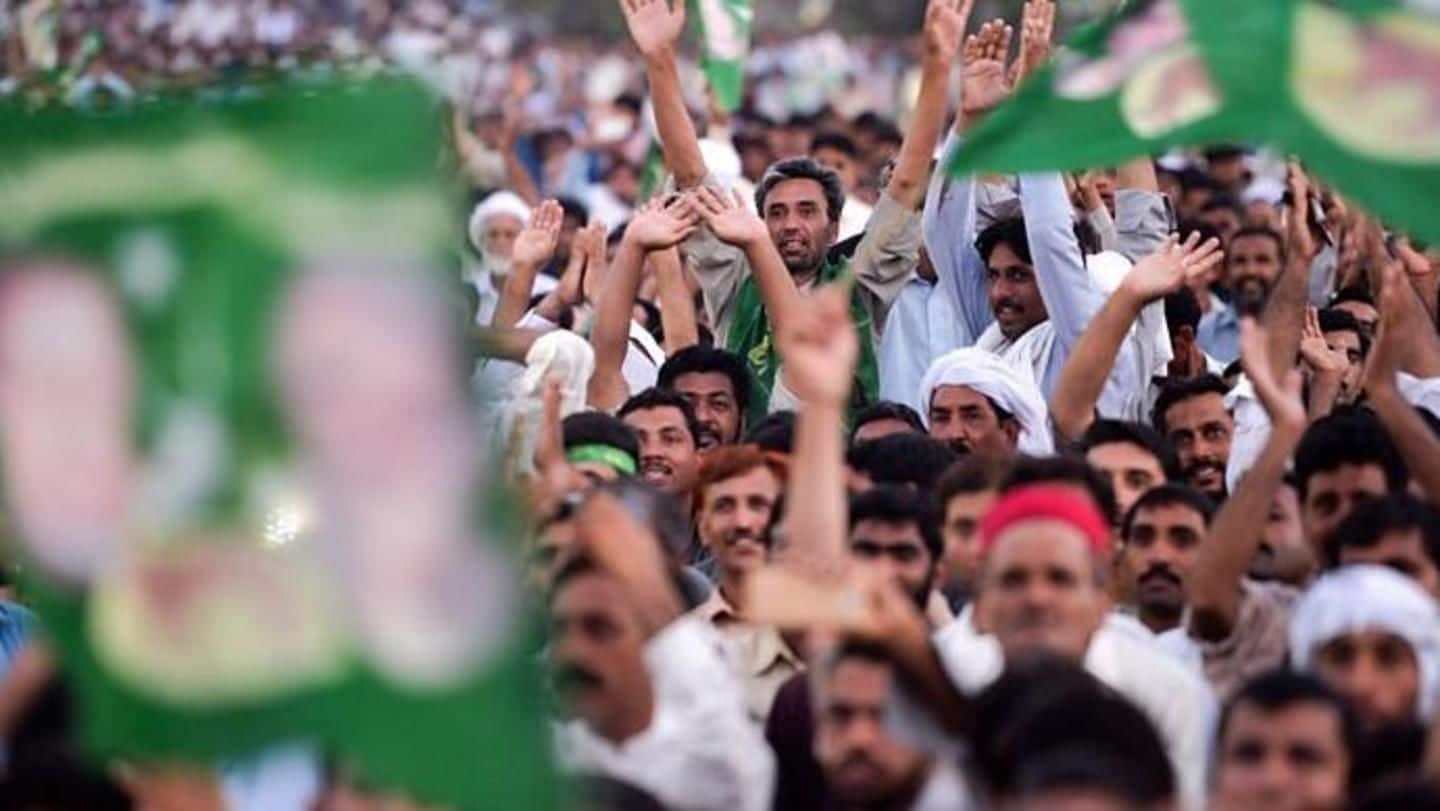
As Pakistan votes, India, US and China on the edge
What's the story
Pakistan votes today in its 11th general elections since 1970, incidentally only the second civilian transfer of power in the country. Two players- former PM Nawaz Sharif's PML(N) and cricketer-turned-politician Imran Khan's PTI- are leading the race, though analysts have predicted a hung parliament. The results can potentially alter Pakistan's relations with the rest of the world and India. Here's all you should know.
Contenders
The key contenders
PML(N) received a blow recently after Nawaz Sharif was jailed, but his brother Shehbaz has taken the reins and is a favorite. Giving it tough competition is PTI, which, six months ago, was just another contender, but support for it has risen sharply since. Reports say the powerful military helped. Then there's Bilawal Bhutto Zardari of PPP and Hafiz Saeed's MML, contesting but unpromising.
Data
Who is likely to win?
There are 342 parliamentary seats in Pakistan, including 60 reserved for women and 10 for minorities, leaving 272 up for grabs. A party needs 136 to win power. Exit polls have sided either with Khan or Sharif, with many predicting a coalition government due to no clear majority.
Military
The role of the military
In Khan, the military'll get "a pliant civilian government...(which) will allow it to have unchecked power," said Shailesh Kumar, Asia Director, Eurasia Group. On the other hand, Sharif is likely to pursue friendship with India, contrary to the military's policy; seek to change military-civilian relations; and has threatened to spill "state secrets." Though it has denied interference, the choice of the military is clear.
Censorship
The "dirtiest election" in Pakistan in years
Analysts have called it Pakistan's "dirtiest election" in years, marred by allegations of rigging, muzzling of the media, attacks and kidnappings. The worst attack was an IS-claimed suicide bombing at an election rally in Balochistan, which killed nearly 150 people. Dawn, Pakistan's largest English-language newspaper, vanished months ago. The country's Human Rights Commission has claimed "blatant, aggressive and unabashed attempts" to manipulate the polls.
Foreign policy
Foreign policy will be a key task for upcoming government
One of the key tasks of the new government will be maintaining international relations, especially with the US and China. US-Pakistan ties have been fraught lately, with the former accusing the latter of not acting against home-based terror. It has suspended millions of dollars in aid. Meanwhile, China is wooing India's western neighbor, offering over $60bn for Pakistan's infrastructure projects.
Finances
It also has to figure out solution to deteriorating finances
Another area of priority will be its rapidly deteriorating finances: Islamabad has seen four currency devaluations since December, registering a devaluation of 15%. The central bank has raised interest rates and the current account gap has increased 43%. Foreign exchange reserves are dropping. Immediate measures might include seeking a bailout from the IMF or approaching China for funds. In the long-term, industry and agriculture have to be boosted.
India
What do the Pakistani elections mean for India?
India's best bet would be a government that is not submissive to the military in Pakistan. In the past, the military has often tried to sabotage bilateral relations, reports claim. Right after PM Narendra Modi paid an impromptu visit to Nawaz Sharif in Lahore, the Indian Air Force station in Pathankot was attacked. An unfriendly government "could cause additional security challenges in the region," said Shailesh Kumar.